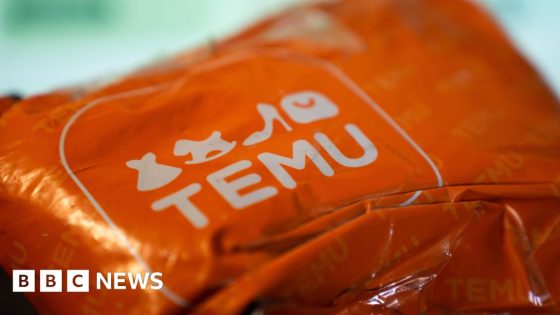PDD Holdings, the Chinese owner of online shopping platform Temu, is facing significant challenges as it reported a near 50% drop in profit. This downturn comes amid the backdrop of US President Donald Trump’s trade policies, which have further complicated its operations both domestically and internationally.
- PDD Holdings profits dropped nearly 50%.
- US shares fell over 13% on Tuesday.
- Profit for Q1 was 14.74bn yuan.
- Trump administration ended "de minimis" exemption.
- PDD faces price war with Alibaba, JD.com.
- Weak consumer spending affects PDD in China.
On May 28, 2025, PDD Holdings announced that its profits for the first quarter fell to 14.74 billion yuan ($2.05 billion, £1.5 billion). Following this revelation, US-listed shares of the e-commerce giant plummeted by more than 13%, reflecting investor concerns over its future performance.
The recent termination of the “de minimis” exemption by the Trump administration, which previously allowed parcels worth less than $800 (£593) to enter the US duty-free, has added to PDD’s woes. Compounding this, the company is embroiled in a fierce price war with rivals such as Alibaba and JD.com, all while grappling with weak consumer spending in China.
This situation raises critical questions about the future of international trade and e-commerce. How will these policies reshape the competitive landscape? And what does this mean for consumers seeking affordable goods?
- The US trade policies could lead to increased prices for consumers.
- Chinese e-commerce giants may face intensified competition and market pressure.
- Global supply chains could be disrupted as companies adjust to new tariffs.
- Investors may seek alternative markets amid rising uncertainties.
As we look ahead, businesses must navigate these turbulent waters carefully. Will e-commerce giants adapt to the changing landscape, or will they falter under pressure? The coming months will be crucial for their survival and growth.






























